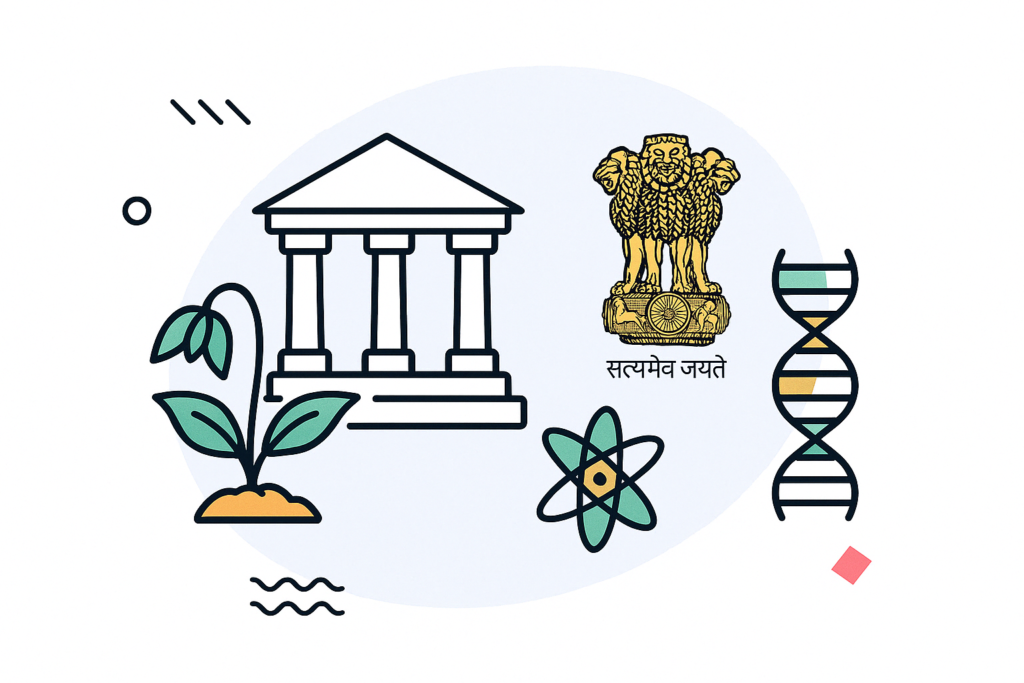2024 has been a game-changing year for the Indian judiciary, with the Supreme Court delivering a series of groundbreaking verdicts that have not only redefined constitutional law but also strengthened civil rights and clarified complex legal questions.
If you’re a law student, a legal professional, or simply someone passionate about understanding how justice works, this is your chance to grasp the impact of these monumental decisions. In this blog, we dive into the cases that are setting the tone for the future of Indian law.
Let’s explore how these decisions are influencing constitutional interpretation, civil liberties, and judicial review!
1. M.K. Ranjitsinh Vs Union of India (2024)

👉 Saving the Great Indian Bustard vs. Renewable Energy Goals
Issue:
How should India protect the critically endangered Great Indian Bustard without compromising renewable energy production?
What Happened:
- The Great Indian Bustard is on the brink of extinction due to habitat destruction and collisions with overhead power lines in Gujarat and Rajasthan.
- The court had earlier ordered that power lines in these areas be installed underground — but the Ministry of Power and Renewable Energy argued that this would hurt India’s solar energy targets.
Judgment:
- The Supreme Court overturned its earlier order, emphasizing a balanced approach to protecting both biodiversity and renewable energy goals.
- An expert committee was appointed to explore the feasibility of underground power lines, and bird diverters were ordered to prevent collisions.
🔥 Impact:
- This ruling underscores the delicate balance between environmental conservation and sustainable development.
- The court affirmed that progress cannot come at the cost of biodiversity.
2. Noble M Paikada Vs Union of India (2024)
👉 Can road and pipeline projects bypass environmental clearance?
Issue:
A 2020 government notification allowed soil extraction for road and pipeline projects without environmental clearance. The petitioner challenged this exemption as a violation of the right to a clean environment.
What Happened:
- The government argued that the exemption would speed up infrastructure projects.
- The petitioner claimed it would lead to unchecked environmental degradation.
Judgment:
- The Supreme Court struck down the exemption as unconstitutional.
- The court emphasized that the exemption lacked public consultation and adequate safeguards.
Impact:
- This ruling reinforced Article 21, the right to live in a clean and healthy environment.
- It set a precedent that environmental protection cannot be bypassed for development.
3. Association for Democratic Reforms Vs Election Commission of India (2024)

👉 Should EVMs be replaced with 100% VVPAT verification?
Issue:
The petition demanded 100% VVPAT (Voter Verifiable Paper Audit Trail) verification for transparency in elections.
What Happened:
- The petitioner argued that EVMs were vulnerable to manipulation.
- The Election Commission defended the current system, citing security and accuracy.
Judgment:
- The Supreme Court upheld the use of EVMs and rejected the demand for 100% VVPAT verification.
- The court ruled that the current system of random VVPAT checks at 5 polling stations per constituency is sufficient.
- However, the court directed the Election Commission to strengthen procedural safeguards.
Impact:
- This judgment reaffirmed faith in India’s electoral process.
- It balanced the need for election security with practical feasibility.
4. Mineral Area Development Authority Vs Steel Authority of India (2024)
👉 Is royalty on mining leases a tax?
Issue:
Can states impose taxes on mining rights, and is royalty considered a tax under Indian law?
What Happened:
- A Nine-Judge Bench examined the constitutional limits of state taxing powers.
- The petitioners argued that royalty is essentially a tax.
Judgment:
- The court ruled that royalty is NOT a tax.
- States can impose taxes on mineral rights under Entry 50 of List II, but these powers are subject to Parliament’s regulations under the Mines and Minerals (Development and Regulation) Act.
Impact:
- The ruling clarified the constitutional boundaries of state taxing powers.
- It strengthened federalism by upholding the states’ authority over natural resources.
5. Gene Campaign Vs Union of India (2024)

👉 Is genetically modified mustard (DMH-11) safe for release?
Issue:
The Union Government approved the environmental release of genetically modified mustard, raising concerns about health risks and environmental impact.
What Happened:
- Justice Nagarathna invalidated the approval, citing inadequate trials and potential health risks.
- Justice Karol upheld the approval, highlighting the need for scientific progress.
- The case was referred to a larger bench for a final decision.
Impact:
- This ruling highlighted the growing tension between scientific advancement and public health concerns.
- It set the stage for future legal battles over genetically modified crops in India.
Conclusion: Why These Judgments Matter
The 2024 Supreme Court judgments have left a lasting mark on India’s legal landscape.
Why should you care?
- If you’re a law student – these cases are essential for understanding judicial review, constitutional interpretation, and civil liberties.
- If you’re a legal professional – these rulings will shape courtroom strategies and policy frameworks.
- If you’re a curious citizen – understanding these decisions helps you grasp how law shapes society and protects your rights.
🌟 Stay tuned for more updates as India’s legal system continues to evolve with Edzorb!

 Podcast
Podcast








 Features
Features






